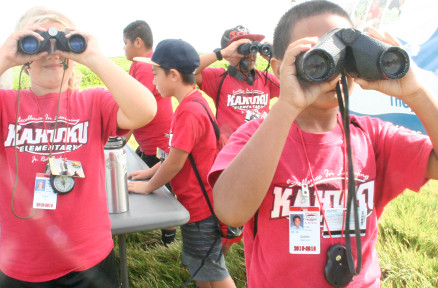Every Kid Outdoors
Who knew that there is a program for fourth graders to visit any of our country’s national parks for free? Did you also know that this offer has been extended to fifth graders by the office of the National Park Service Director? How does this program work? Do I want to take advantage of it? How do I attend responsibly, enjoying the land while protecting it?
The Every Kid Outdoors program allows U.S. fourth graders and family members free access to over 2,000 federal lands and waters. They want fourth graders to discover our wildlife, resources, and history at this ripe period of their lives. Studies have repeatedly shown that right around the fourth grade is a period of brain development where kids are gathering foundational knowledge that shapes their understanding of the world and directs their curiosities. The National Park Service believes this is a crucial time for kids to explore and they want to help by giving kids access to places for growth.
Because the year 2020 was full of public health concerns, many fourth graders did not get an opportunity to use this free pass. For this reason, the office of the National Park Service Director has decided to extend use of this pass to fifth graders for the 2020/2021 season. In addition to the pass usually being available to fourth graders, fifth graders and their families will have free access to national parks and other federal lands managed by the Department of the Interior from October 28, 2020 through August 31, 2021. For specific instructions on how to access this pass go to nps.gov.


With rising attendance at our national parks, the principles of Leave No Trace are becoming more and more important. There is a great emphasis in the outdoor community on protecting our parks and finding ways to help nature flourish where we can enjoy it. Fourth and fifth graders are in a fantastic learning window. They’re encouraged to visit the parks and soak up all they have to offer. Liberty Mountain hopes that an emphasis on leaving no trace during their visit will contribute to kids' discovery experience. If fourth and fifth graders were able to hone their ability to notice the impact they make, they may learn to notice everything else around them as well. Learning to spot a wrapper in a bush isn’t that different from observing a bird's nest in a tree. Searching the ground for a missing tent stake isn’t that far off from following a trail of ants to their home.
There is so much to observe in our national parks and there are many parks with differences between them. Observing these differences can spark curiosity. What is it about these lands that allows plants to grow despite an apparent lack of water? Why do these trees disappear as we climb down the trail? What if your fourth grader heard a story about one of the plants you discover together being used in a medicine and that experience starts them on a path to a career in medicine?
It is very important for us to enjoy our world and all it has to offer. After all, everything that exists on our planet was once in the ground. The roots of every occupation trace back to a mineral from the earth. Every block of society relies on our planet. Our national parks have been set up as a place to protect these parts of our world so that we can recreate and educate ourselves. Let’s do so responsibly by committing to Leave No Trace and protect our parks for as long as we can so that our fourth graders can enjoy the same places that we did.
